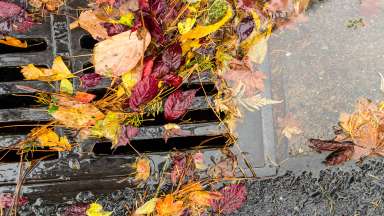Jump To:
If you see stormwater pollution, call the Stormwater Helpline at 919-996-3940 or email IllegalDischarge@raleighnc.gov.
If you observe or experience a water line break, contact the Raleigh Water Call Center at 919-996-3245.
Sediment Overview
Sediment is the loose sand, clay, silt and other soil particles that settle at the bottom of bodies of water. Sediment comes from stream bank erosion, construction sites, and areas of disturbed land. Break down of plants and animals is another large source of sediment in our rivers, lakes, and streams.
While sedimentation is a part of the environment, too much sediment, especially over a short period of time, can pollute water bodies by:
- Breaking down plant and animal habitats and reducing the health of local streams
- Impairing the use for recreational and commercial purposes
- Promoting invasive plant species growth
- Carrying other pollutants like heavy metals and nutrients
3 Ways to Prevent Sediment Pollution
The Clean Water Education Partnership (CWEP) discusses ways you can help prevent sediment pollution.
Active and Post Construction
Erosion and sediment control is important on every construction site. Construction sites, large or small, can become a problem for nearby neighbors and the environment when soil is disturbed. Learn more about ways to prevent pollution on active and post construction sites.
Leaves and Yard Waste
When leaves and yard waste are not properly disposed, they flow through the storm drain to local waterways and release pollutants that kill plants and organisms in our waterways. Learn more about how you can keep leaves and yard waste from entering storm drains.
